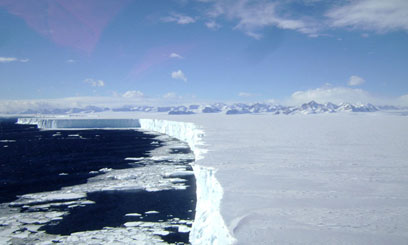For Peter Schlosser, an expert with the Earth Institute at Columbia University, the impact of the polar ice cap melt is hard to determine because “the Arctic is likely to respond rapidly and more severely than other part of the Earth.
“The effects of human induced global change are more and more visible and larger impacts are expected for the future,” he said.
Some see the Arctic melt as a business opportunity – a chance to reach the oil and gas riches under the seabed, and a path for ships to shorten the distance between ports and saving time and fuel.
According to the US Geological Survey, within the Arctic Circle there are some 90 million barrels of oil – 13 percent of the planet’s undiscovered oil reserves and 30 percent of its undiscovered natural gas.
The potential bounty that has encouraged energy groups like Royal Dutch Shell Co. to invest heavily in the region.
Greenpeace International head Kumi Naidoo says that oil companies have thwarted governments from taking action to cut back on greenhouse gas emissions.
“Why our governments don’t take action? Because they have been captured by the same interests of the energy industry,” Naidoo said.
Anne Siders, a postdoctoral researcher at Columbia University’s Center for Climate Change Law, warned against the “temptation” of sending ships through the area.
The new shipping lanes are dangerous to use because there are plenty of ice floes and little infrastructure for help in case of an accident – which in turn increases the insurance costs.
Another consequence of global warming is that, as the oceans warm, more cold-water fish move north, “which means more fish will be taken out of their ecosystem,” said Siders.
Caroline Cannon, a leader of the Inupiat community of Alaska, reminded the participants that her indigenous community, including her nine children and 25 grandchildren, depend on Arctic fishing and hunting for survival.
“My people rely on that ocean and we’re seeing dramatic changes,” said Cannon. “It’s scary to think about our food supply.”











































